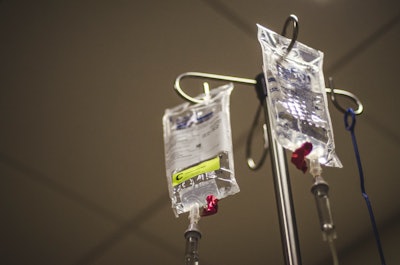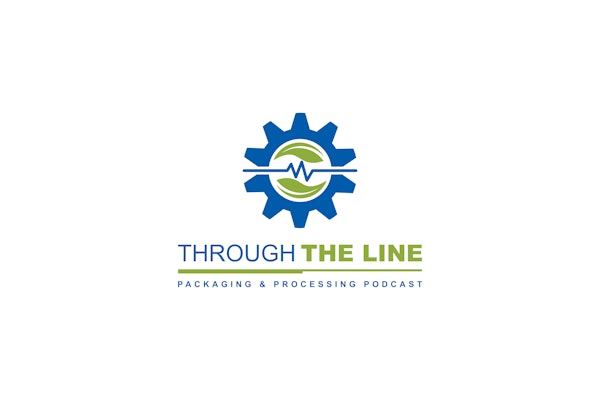Key takeaways:
· California State Senate and House of Representatives have passed a bill restricting the use of DEHP in intravenous fluid containers and tubing in medical devices.
· As an endocrine disruptor, DEHP poses risks including hormonal disruptions, reproductive health issues, and an increased risk of various cancers.
· Kaiser Permanente, one of the nation’s largest not-for-profit health plans, has already eliminated PVC and DEHP from IV solution bags.
In a push for increased public health and safety, the California State Senate and House of Representatives have passed Bill AB 2300, introduced by Assembly Member Wilson. The bill imposes strict restrictions on the use of Di(2-ethylhexyl) phthalate (DEHP), especially in intravenous fluid containers and tubing in medical devices, the first bill of its kind for the country.
From January 1, 2030, the manufacture, sale, or distribution of intravenous fluid containers containing intentionally added DEHP will be prohibited within the state.
Why it’s important
DEHP is a chemical primarily used to increase the flexibility of plastics made from polyvinyl chloride (PVC). It is widely used by the medical industry. Over time, DEHP can leach out of these plastics into the contained liquids, potentially leading to exposure during medical treatments. As an endocrine disruptor, DEHP poses risks including hormonal disruptions, reproductive health issues, and an increased risk of various cancers.
“DEHP is a phthalate plasticizer and is a well-studied endocrine disrupter impacting human bodies or hormones, there’s been quite a bit of scientific evidence going back at least 20 years,” said Christian Hutter, Sustainability & Packaging Leader at B. Braun.
And IV tubing is a widely used item in hospitals all over the world.
“Roughly 90% of people that go into a hospital are going to end up having an IV bag and the numbers are round 70% of IV bags used in the U.S. are made from PV and DEHP, so there is a lot of potential exposure,” said Hutter.
DEHP is not only bad for patient health, but also for the environment as it is a toxic chemical. An alternative to PVC and DEHP in medical device packaging like IV fluid bags is PP (polypropylene).
“PP is well known and is the third most recycled material,” said Hutter. “Our IV solution portfolio is not made with DEHP & PVC, and it’s been that way for 40 plus years. We’re happy to see this historic legislation moving forward.”
Broad acceptance may be the future
As the legislation currently is first of its kind for the country, California may be only the beginning of a broader ban. In Europe, a ban on DEH & PVC is much more common. Health Care Without Harm Europe stated in a fact sheet: Experience at Karolinska University Hospital (Sweden), the Vienna Hospital Association (Austria), Na Homolce and Olomouc Hospitals (Czech Republic), Kosice Saca Hospital (Slovakia) and Clinique Champeau (France) provide ample evidence for the claim that PVC phase-out is not only possible – it is realistic.
“Change is always challenging especially in med device/ pharma space,” said Hutter. “The good news is this isn’t new technology to replace these bags… the solutions and capacities are there.”
And though not yet passed, stateside, Senator Lisa Boscola announced earlier this year that she will be introducing legislation requiring licensed medical facilities in Pennsylvania that utilize IV bags and other medical devices made with DEHP to formally notify patients of their use and the documented risks posed by this toxic additive. Her proposal would also require a phase out of DEHP IV-bags and tubing over time, starting with high-risk patients (NICUs, pediatrics, and cancer patients).
Another supporter of the bill is the Breast Cancer Prevention Partners, which has an entire website devoted to stopping the use of DEHP in IV bags and tubing.
There are also thousands of hospitals across the country, as well their group purchasing networks that are completely on board with the ban.
Kaiser Permanente is one of the nation’s largest not-for-profit health plans, serving 12.5 million members and is a supporter of this bill. As part of the company’s push for better public health, it has integrated a “robust set of purchasing standards into our product sourcing processes that include criteria for safe chemicals and sustainable waste disposal.” This includes the fact that it has already eliminated triclosan and triclocarban from soaps, lotions, and sanitizers as well as eliminated PVC and DEHP from IV solution bags.
While the chemical ban is only in effect in California, the passion for change, the knowledge of the problem, and the technology to create alternative IV fluid bags and tubing is here for broader acceptance.






















